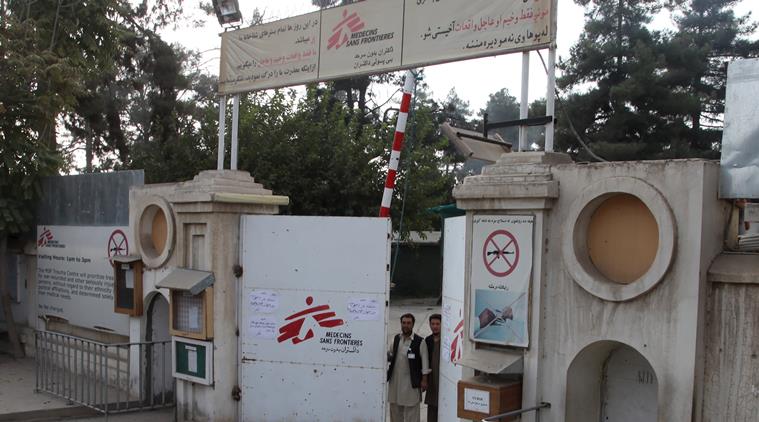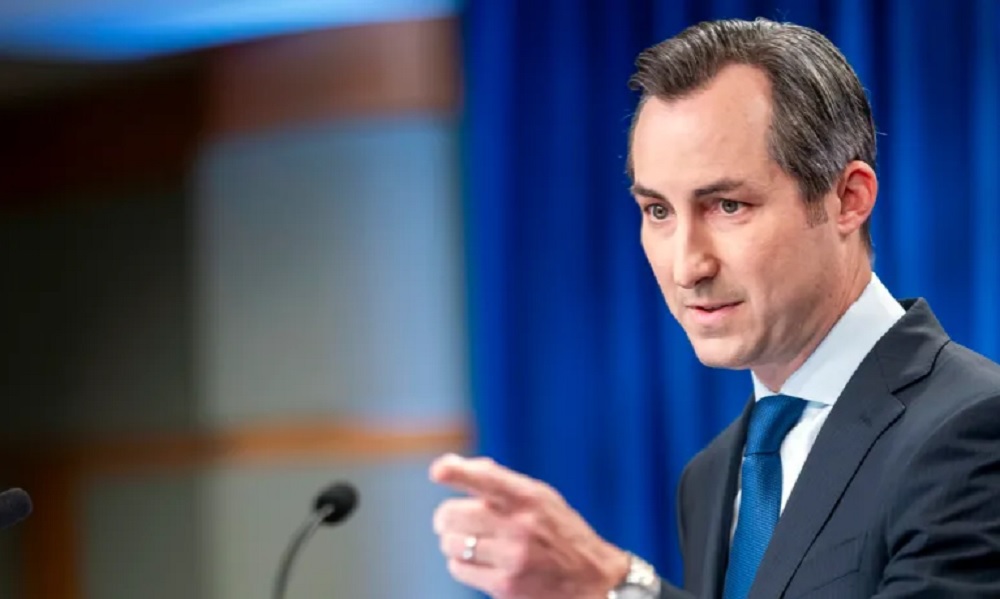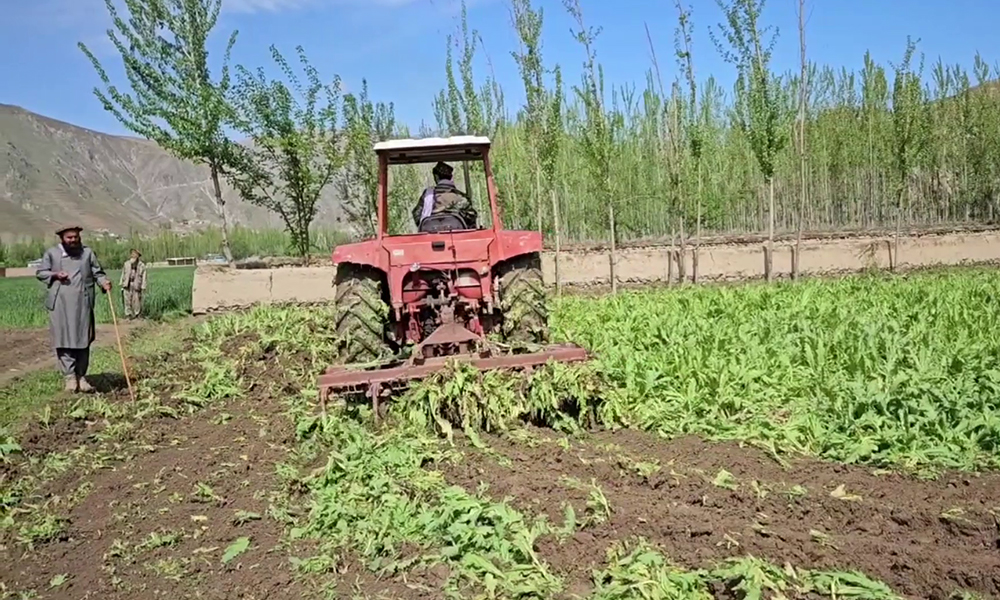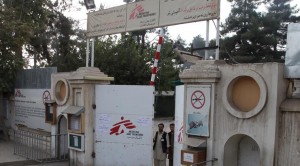Latest News
MSF finds US report ‘unacceptable’ on Kundoz hospital bombing

The international medical organization, Médecins Sans Frontières (MSF) or Doctors Without Borders has considered the US investigation unacceptable about the attack on the hospital in Kunduz.
Chairman of MSF in Afghanistan says questions are still remain unsolved about the US bombing and the amount of compensation to the victims’ families by US is negligible.
Previously, MSF demanded a full and transparent account from the Coalition regarding its aerial bombing activities over Kunduz and also called for an independent investigation of the attack to ensure maximum transparency and accountability.
U.S. military report released on Friday said that the deadly U.S. air strike in Afghanistan last year that destroyed a hospital run by Doctors Without Borders did not amount to a war crime but was caused by human error, equipment failure and other factors.
Forty-two people were killed and 37 were wounded during an Oct. 3 strike that destroyed the hospital run by the international medical charity Medecins Sans Frontieres (MSF), known as Doctors Without Borders in English.
An initial U.S. investigation in November found that U.S. forces had meant to target a different building in the city of Kunduz and were led off-track by a technical error in their aircraft’s mapping system.
According to investigation documents released Friday, the attack on the the Doctors without Borders hospital was the final event in a breakdown of communication between a number of units on the ground and in the sky. The failures compounded, resulting in the misidentification of the hospital as a Taliban command center.
The incident, categorized by Votel as a “tragedy,” provides a glimpse into the potential pitfalls of how the United States now fights its wars abroad.
MSF is an international medical organization and first worked in Afghanistan in 1980. MSF opened Kunduz Trauma Center in August 2011 to provide high quality, free medical and surgical care to victims of trauma such as traffic accidents, as well as those with conflict related injuries from bomb blasts or gunshots.
In Afghanistan, MSF supports the Ministry of Public Health in Ahmad Shah Baba hospital in eastern Kabul, Dasht-e-Barchi maternity in western Kabul and Boost hospital in Lashkar Gah, Helmand province. In Khost, in the east of the country, MSF runs a maternity hospital. MSF relies only on private funding for its work in Afghanistan and does not accept money from any government.

Latest News
US asks IEA to ensure Afghan soil not used by terrorists

The US State Department on Thursday asked the Islamic Emirate of Afghanistan (IEA) to ensure that Afghanistan is not used to support terrorist groups, movement of terrorists or acts of terrorism.
A State Department spokesman told Geo News that Washington has “been very clear that we will judge the Taliban (IEA) by what they do, not what they say.”
“The Taliban (IEA) wants international legitimacy. This requires the Taliban (IEA) to meet their commitments to the international community,” the official said.
The spokesperson said the most enduring interest for the US in Afghanistan was to ensure that it never again became a safe haven for terrorists, especially for those who wished harm to the US or its partners or allies.
“We are in regular communication with Pakistani leaders as a part of our partnership on counterterrorism issues. We continue to discuss Afghanistan in detail, including through our annual counterterrorism dialogue and other bilateral consultations,” the official said.
Islamabad has time and again urged Kabul to take meaningful action against terrorists using Afghan soil to launch attacks inside Pakistan.
However, the IEA has repeatedly rejected claims of militant groups in the country and have said they will not allow any group to threaten a country from Afghanistan.
On Tuesday, the Pakistan Army’s top commanders were briefed on how terrorist groups operating from Afghanistan pose a threat to regional and global security, besides acting as proxies against Pakistan and its economic interests, especially the China-Pakistan Economic Corridor (CPEC).
A day ago, the Inter-Services Public Relations (ISPR) said security forces had killed seven terrorists trying to infiltrate the Pakistan-Afghanistan border in the North Waziristan district.
In a statement, the military’s media wing had said the security forces on April 16 had detected a movement of a group of seven terrorists near the border in the Spinkai area of Ghulam Khan in the tribal district, Pakistan’s The News reported.
Latest News
Over 6,000 acres of land cleared of poppies in Badakhshan

Badakhshan Police Command says it has cleared more than 6,000 acres of poppy fields in northern Badakhshan province.
The anti-narcotics department of Badakhshan Police Command says that since the beginning of the campaign to destroy the poppy fields in this province, they have cleared more than 6,000 acres of land.
According to these officials, poppies have however been planted in more than 10 districts this year.
The anti-narcotics department of the Badakhshan Police Command says that the campaign to destroy the poppy plantations started two months ago and continues.
According to the officials, during this period, 6,300 acres of land has been cleared.
Some of the farmers whose fields were destroyed say that poppy is more profitable than other agricultural products, but now that their land has been cleared, they want alternative crops.
According to the officials, Kishim, Argo, Darayimand and Jurm districts are among the districts where poppies are cultivated.
Latest News
MSF ‘deeply concerned’ over new phase of deportations of Afghans from Pakistan

Médecins Sans Frontières (MSF) said Wednesday it was deeply concerned for the rights and welfare of Afghan refugees in Pakistan in the wake of the recent announcement by Islamabad that it plans to start Phase Two of the deportation campaign.
Pakistan is home to an estimated 3.7 million Afghans, and a reported 500,000 have crossed the border so far.
Many Afghans living in Pakistan have been there for decades and have spent more time in the country than their country of origin, without any legal recourse to remain in the only place they can effectively call “home”.
For many Afghans, Islamabad’s “repatriation” campaign means packing up their belongings and carrying them on a horse, cart, car and bus and traveling en masse to a country that is already struggling with widespread poverty, inadequate health services and increased restrictions on women, MSF said in a statement.
The second phase of the deportations leaves an estimated 800,000 Pakistan-issued Afghan Citizen Card (ACC) holders vulnerable to return, while phase three is expected to result in the further deportation of UNHCR-issued Proof of Registration (PoR) card holders, MSF said.
MSF first started working in Pakistan in 1986, and today provides much-needed medical care to people in Balochistan, Khyber Pakhtunkhwa and Sindh provinces.
The Islamic Emirate of Afghanistan (IEA) and UN agencies estimate that more than half a million people have been deported from Pakistan or voluntarily returned to Afghanistan in the past six months.
The United Nations High Commissioner for Refugees said last month that nearly two million Afghan refugees are living in Pakistan and that the agency needs $368 million this year to assist these people.
-

 Sport5 days ago
Sport5 days agoACL draw to be broadcast live on ATN channels
-

 Sport4 days ago
Sport4 days agoACL fever grows as fixtures finalized
-

 World4 days ago
World4 days agoUS will not take part in any Israeli retaliatory action against Iran
-

 Latest News4 days ago
Latest News4 days agoOver 50 people dead in traffic accidents over Eid
-

 Latest News4 days ago
Latest News4 days agoUS identifies Kabul airport suicide bomber
-

 Business4 days ago
Business4 days agoAfghanistan-Kazakhstan chamber of commerce opens in Herat
-

 Latest News4 days ago
Latest News4 days agoGood rains enable DABS to increase power production in Kabul
-

 World3 days ago
World3 days agoIsraeli military vows response to Iran attack as calls for restraint mount

















